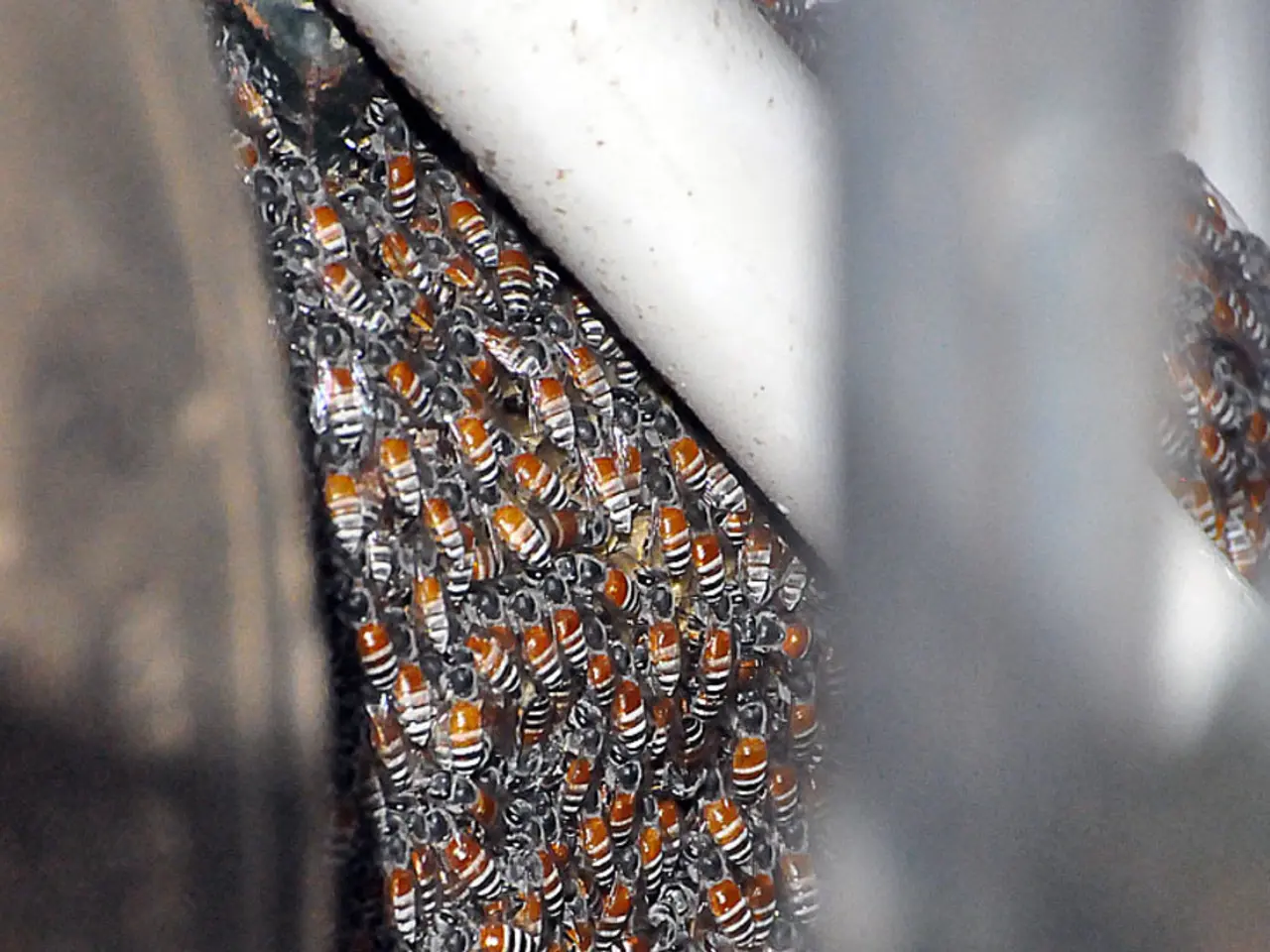Pregnancy Safety, Advantages, and Potential Risks of Salicylic Acid Use
Safe Skincare during Pregnancy: A Guide to Acne Treatment
Pregnancy can bring about a host of changes to a woman's body, including shifts in hormones that may lead to skin problems such as acne. Navigating skincare choices during this period can be challenging, but understanding which ingredients are safe can help expectant mothers maintain a clear complexion.
One common ingredient in various skincare products is salicylic acid. This colorless, crystalline beta-hydroxy acid is the key metabolite of aspirin and is available in both oral and topical forms. However, when it comes to pregnancy, the safety of oral salicylic acid is a concern.
Oral salicylic acid medications are not safe during pregnancy. Consuming these medications can lead to complications like miscarriage, birth defects, and intracranial haemorrhage. Over-the-counter salicylic acid products may not be safe either, and it is advisable to avoid them during pregnancy.
The application of topical salicylic acid during pregnancy, on the other hand, may be a different story. Topical salicylic acid is generally considered safe to use during pregnancy for acne treatment when applied in low concentrations (around 1-2%). Medical experts like Dr. Hakakha support its topical use during pregnancy without concern, based on its similarity to low-dose baby aspirin and widespread clinical use.
However, it is important to note that there is some disagreement among sources. While some dermatologists and pregnancy skincare guides strongly endorse topical salicylic acid as safe and effective when used correctly, others advise caution or avoidance due to its aspirin-like chemical nature and possible fetal risks.
The safest approach is to use low-strength topical formulations and consult a healthcare provider before starting. Benzoyl peroxide is also generally considered safe during pregnancy as an acne treatment, with a maximum concentration of 2.5% under supervision.
Alternatives like azelaic acid and niacinamide are often recommended for pregnancy-safe acne control. Glycolic acid and azelaic acid are not absorbed in high measures by the skin and are generally considered safe.
It is essential to remember that retinoids (including retinol and Retin-A) are strongly contraindicated due to well-known teratogenic risks.
In summary, topical salicylic acid at low concentrations is safe during pregnancy for acne treatment according to leading dermatologists and recent medical guidance, but it is important to avoid oral forms and confirm with your doctor.
In addition to careful skincare choices, a good skincare routine, including washing the face twice daily and maintaining a healthy diet, can prevent many skin problems during pregnancy. Avoiding scrubbing, popping zits, and touching the face too often can help prevent irritation and bacterial spread during pregnancy. Using an oil-free, non-comedogenic, pregnancy-safe sunscreen with a good SPF can prevent sunburn during pregnancy.
Skin troubles during pregnancy are usually temporary and subside after childbirth. Eating foods rich in Vitamin A, such as carrots and eggs, can be beneficial for the skin during pregnancy. As always, consulting a doctor before using any topical treatments during pregnancy is advisable to avoid potential risks to the pregnancy.
Parenting and pregnancy often require a focus on health-and-wellness, including the consideration of safe skincare practices. While oral salicylic acid medications are not safe during pregnancy due to potential complications, topical salicylic acid, when used in low concentrations, is generally considered safe for acne treatment according to leading dermatologists. In addition to topical salicylic acid, women can consider alternatives like azelaic acid and niacinamide for pregnancy-safe acne control. It's crucial to always consult a healthcare provider before starting any new skincare regimen during pregnancy.




